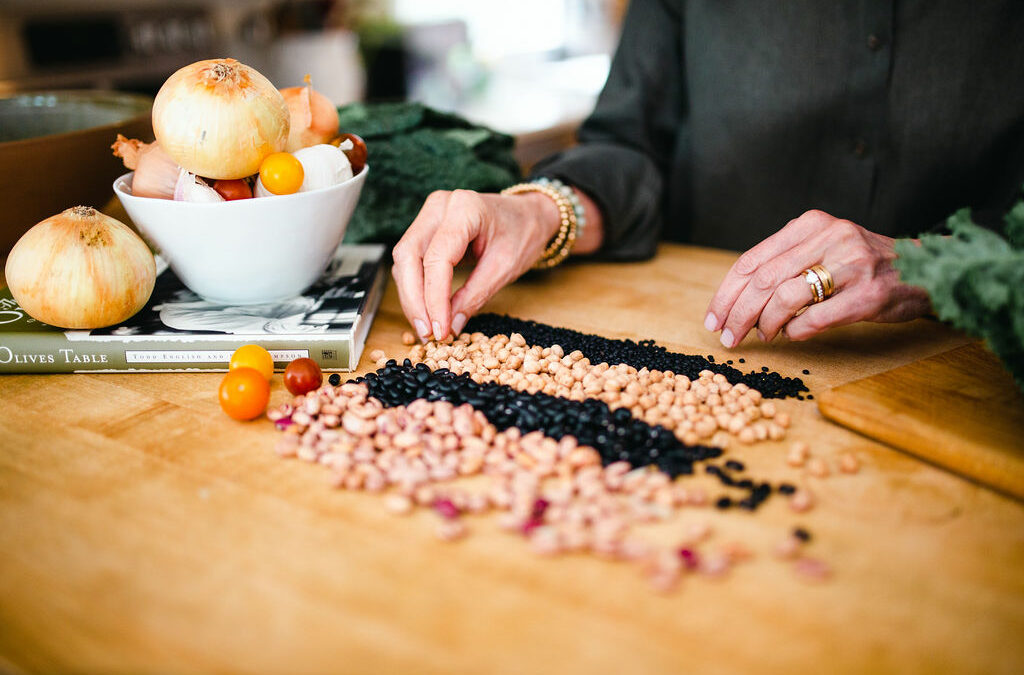This weekend I held a workshop and got a lot of questions about protein sources, so I thought you might be interested, too.
The types of protein you choose is individual, based on your preferences, needs and sensitivities. Keep in mind that a diet higher in plant-based rather than animal protein is generally healthier, including for hormone health.
Here’s a list of protein-rich foods:
- Animal Protein – Sources of animal protein include beef, turkey, chicken, lamb and game meats. When choosing animal protein, look for products that are organic and humanely raised without added hormones or antibiotics.
- Beans and Legumes – Beans and legumes are a great protein source: black beans, garbanzo, chickpeas, lentils, etc. Beans have a more complete set of amino acids (often referred to as the building blocks of protein) than other plant foods. If you’re new to eating beans choose fresh beans that are smaller in size such as split peas, mung beans and adzuki beans to more easily digest them. You can help digestibility of all beans by soaking dried beans overnight before cooking, adding spices or vinegar, pressure cooking or puréeing and eating small portions. Green peas (technically a legume) are also a good source of protein.
- Dairy – Protein-rich dairy includes Greek yogurt, yogurt, cottage cheese and cheddar cheese.
- Eggs – Eggs are a complete source of protein.
- Fish – Wild-caught fish are generally a healthy source of protein. Fatty or oily fish are also a good source of omega-3 fatty acids.
- Nuts – Nuts are a healthy source of fats, fiber and protein. Good choices are walnuts, almonds, and hazelnuts. Peanuts (technically legumes) are higher in protein than other nuts. Nut butters are another good source of protein. Note, if you use nut milks, read labels, they should contain only nuts and water.
- Seeds – Seeds are high in nutrients and lower in calories than nuts. Pumpkin seeds, sunflower seeds and sesame seeds are higher in protein than others, and in general seeds are a great source of omega-3 fatty acids, vitamin E and fiber. Some of the healthiest seeds are chia and flax.
- Seitan – Seitan, AKA wheat meat, while not a whole food, is high in protein and not overly refined, particularly if you can find a trusted organic producer or have it home made. It’s made from wheat gluten – so it’s not for you if you’re gluten sensitive or avoiding gluten.
- Soy – Tofu and tempeh are good sources of protein. If you eat soy products, choose organic varieties.
- Quinoa – Quinoa is a plant-based, complete protein.
- Vegetables –– Leafy greens contain varying amounts of protein and high amounts of magnesium, iron and calcium. Good sources are broccoli, spinach, kale, collard greens, bok choy, romaine lettuce and watercress. Leafy greens also have antioxidant and anti-inflammatory properties. Protein is also found asparagus, broccoli and cauliflower.
xo,
Jennifer
p.s. Ready to reset your eating habits? Join the 14-day Reset. We start 4/22.

